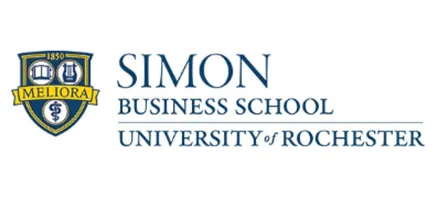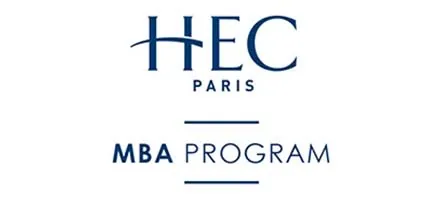
In Chicago, K-12 students are staying home, and so are Chicago Booth students as the city contends with a coronavirus surge
As the 2021 holiday recedes and students prepare for the new quarter, the University of Chicago, home to the Booth School of Business, has already taken some big steps to ward off widespread coronavirus infection. Perhaps even more than its peer schools, Chicago has operated under the threat of the Omicron variant, as its home city struggles under the weight of a massive surge in cases.
Beginning in the middle of last month, the university began announcing measures to mitigate the growing health crisis, first by moving the entire winter quarter, pushing back the start date by a week to January 10. The school further suspended all in-person classes, including those for all MBAs, until January 24.
Now, in another, less-vaunted move — unaccompanied by a statement from the school — the Booth School has extended its round 2 MBA application deadline by a week, to January 11. So far, no other top B-school has changed its admissions deadlines in response to the latest coronavirus surge; does Booth’s move portend more extensions, as happened in March 2020?
JANUARY 24 IS TARGET DATE FOR RETURN TO IN-PERSON CLASSES

University of Chicago Provost Ka Yee C. Lee
The latest surge in coronavirus cases linked to the Omicron variant has the city of Chicago scrambling. More than 350,000 schoolchildren in grades K-12 were out of class for a fourth straight day January 6 as school districts grappled with a teacher shortage and reluctance to return to classrooms under conditions construed as unsafe. At the University of Chicago, officials adjusted the school’s January schedule twice in December as Covid cases surged in Chicago and elsewhere. On December 23, Ka Yee C. Lee, University of Chicago provost, and Katie Callow-Wright, executive vice president of the university and chief of staff in the Office of the President, wrote to all students and faculty that the winter quarter would be delayed by a week, a unique move among elite universities.
“In recent days,” the provost wrote, “the rapid spread of Covid-19, due in part to the Omicron variant, has surpassed previous projections both locally and nationally. We continue to closely monitor developments to help ensure we maximize in-person instruction while upholding the health and safety of our community and managing the challenges of the Covid-19 surge.”
When classes resume for most schools and divisions January 10, they will be in a remote-only instructional format for the first two weeks of the quarter, Lee announced. “We anticipate a return to in-person instruction in Week 3 of Winter Quarter, beginning on January 24,” she wrote.
“Delaying the start of the quarter and moving to remote-only instruction for two weeks should allow us to get past the peak of Omicron infections, help reduce case counts in the on-campus populations (especially in residence halls), conserve medical resources in our community, and reduce disruptions to instruction. In addition, the delay in starting will provide University instructors sufficient time to transition to remote learning.” Moreover, she added, to “align the University’s new Covid-19 booster requirement with the return to in-person classes, we are shifting the deadline to January 24, 2022 for students to submit proof of receiving a Covid-19 booster shot unless they have an approved exemption.”
In a December 31 update, Lee and Callow-Wright write that the school is sticking with its January 24 return to in-person instruction — for now.
“Current projections are that we will pass the peak of this wave of infections before January 24,” they write, “though we anticipate high levels of Covid-19 infection after that point as well. One important consideration in the University’s decision to delay the start of Winter Quarter is to avoid placing additional stress on the hospital’s capacity to provide care for all who need it. Another priority is to lessen the on-campus spread of the virus following possible exposures from travel and holiday celebrations, particularly New Year’s celebrations.
“Although the start of Winter Quarter has been delayed by one week for most schools and divisions, and Spring Break will now begin on March 19 instead of March 12, the date of Convocation has not changed. Convocation is still scheduled for Saturday, June 4.”
COVID-19 IS LIKELIEST REASON FOR DEADLINE EXTENSION
In March 2020, chaos erupted across graduate business education, as it did across the globe. Amid the initial onset of the coronavirus pandemic, B-schools shut down their campuses, moved instruction to remote modalities wherever possible, and canceled all travel-related programming, including many long-running experiential programs. Perhaps most significantly, most B-schools also extended their application deadlines, waived testing requirements, and added rounds to accommodate prospective MBA candidates struggling with the sudden immense disruption.
Application deadlines had not been moved at the top schools since — until Booth’s round 2 extension. But was the Booth move the result not only of the Omicron coronavirus surge, but other factors as well?
Linda Abraham, founder of admissions consultancy Accepted, says other possible reasons for the extension are bad weather in the Midwest, which “could lead to tech problems for applicants (power and internet outages),” while the Covid-19 surge could be the cause of “staffing issues at Booth and applicants being unable to submit due to illness.” She raises another possibility: a decline in application volume “so Booth wants to give people a few more days to submit their applications.”
An MBA application volume decline would be noteworthy, and quite unexpected. Booth was one of 19 of the top 25 B-schools to see big rebounds from the pre-pandemic app slump, not only in 2020 but in 2021 as well. In fact Booth’s app volume has proven among the most resilient of any top school, as Chicago was one of just two top-25 B-schools not to experience a downturn in the final year of the pre-pandemic decline in interest in MBA programs.
A PORTENTOUS MOVE?
However,, there is some evidence that a general MBA application slump may be on the horizon, partly as a result of the booming job market. Will Booth’s move lead to similar measures at peer schools, as they seek to offset a coming downturn?
Time will tell.
“I haven’t heard of any other schools extending their round 2 deadlines at this point,” Linda Abraham says.
Visit Booth’s coronavirus dashboard here.
DON’T MISS COVID-19 RESPONSES & JANUARY PLANS AT THE TOP 25 MBA PROGRAMS and THE CRYSTAL BALL: B-SCHOOLS ACKNOWLEDGE CHALLENGES, PUT POSITIVE SHINE ON 2022









